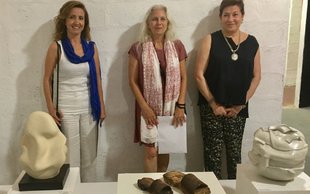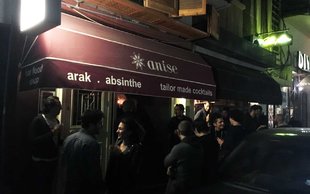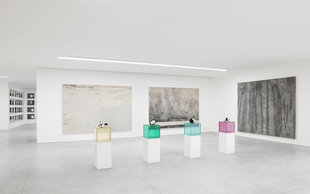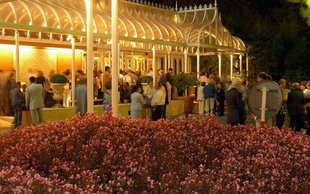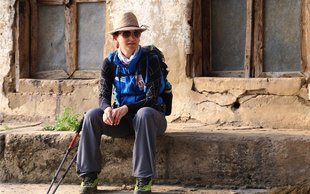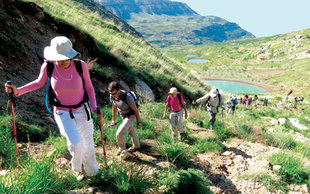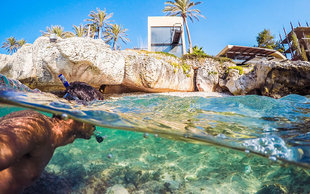Interview with Ziad Abi Chaker, arguably the only player in Lebanese recycling.
In recent months, Beirut’s waste crisis has emboldened disenchanted citizens to protest and demand that the government implement sustainable solutions to keep garbage from piling up on the streets.
But unbeknownst to many, Ziad Abi Chaker, founder of Cedar Environmental has been spearheading projects to minimize the impact of hazardous waste in Lebanon for over a decade.
“We’ve been calling for a decentralized approach to waste management for 16 years,” he says. “It’s why we created Cedar Environmental, to push for a decentralized way to manage solid waste.”
The firm, run by architects and engineers, such as Abi Chaker, builds waste treatment plants that adopt a “zero waste recycling” principle and cater to municipalities directly. Though mostly based in south Lebanon, the garbage crisis gripping the country has piqued the interest of other municipalities, dozens of which have already approached the company to help solve their mounting waste issues, Abi Chaker says.
Dealing with municipalities directly, and not the central government, is beneficial in many ways, he argues. “You break down the load of the waste, for one, so instead of concentrating 300 tons of garbage in one landfill, we build several zero waste recycling plants.”
Zero waste, as implausible as it might initially sound in the Lebanese context where recycling is far from mainstream, is Cedar Environmental's claim to fame. The company’s waste treatment facilities sort, compost, and recycle waste with the aim of leaving nothing behind.
“We have to sort because most of the time the waste reaches us unsorted,” Abi Chaker explains. “Then all the organic material is fed into composting drums and transformed, in an accelerated way, into compost.”
Plastic and glass are also separated and processed in a machine that reduced their volume so they can be shipped to other recycling plants without hefty transportation fees. Plastics such as water bottles that typically occupy a large amount of space but are light to transport undergo a compaction process and are sent to a factory in the Bekaa Valley that transforms them into polyester fibre and cushions that are sold wholesale.
Working with four to five municipalities in south Lebanon, Cedar Environmental processes collected waste on a daily basis. “They bring all their waste to the recycling facility and we deal with the rest – in our system there is nothing that is not recycled,” Abi Chaker explained.
Part of Cedar Environmental's success is due to “Eco Board” a technology Abi Chaker and his team developed in Lebanon that transforms otherwise unrecyclable items, such as plastic bags, cutlery, CD and cases, toothpaste tubes, into panel boards used to build greenwall structures. The panels, Abi Chaker adds, can last up to 500 years.
The innovative firm is in many ways ahead of its time in Lebanon, despite being active since 1999 when it was established.
The idea to conceive Cedar Environmental occurred to Abi Chaker while he was still a second-year engineering student at Rutgers University in the U.S. “The professor asked me to take part in a research team looking into compost techniques and I kind of fell in love with the work, and I’ve been hooked since then,” he laughs over the phone.
He believes that in time, Lebanon can institute the kind of recycling regimen expected of citizens in Canada and the U.S. “Recycling was unheard of in the 60s in the U.S. or Canada, and people and environmental movements started bringing awareness to the general public that we cannot go on like this, and it took time,” he says. “Eventually we are going to get there.”
The common argument derailing recycling initiatives is cost, but Abi Chaker says such projects can be cost effective and sustainable.
“Before we talk about cost efficiency, we have to realize that we have no right to dump waste in pristine lands, morally these lands don’t belong to us they belong to future generations,” he says.
“But the cherry on the cake is we can do zero waste and still use half the money they use operating a landfill, in terms of putting goods back to the local economy, creating new ventures. We’ve opened ten doors with all the things we can do with recycled materials.”
Today, Cedar Environmental operates with a staff of 36 people in ten waste sorting plants, eight in south Lebanon, one in Jbeil and a slaughterhouse in Beirut. Employees in recycling plants, however, are paid by the municipalities, Abi Chaker is quick to point out. Before the 2006 war, Cedar Environmental boasted 12 plants, of which two were hit due to shelling.
Before the recent waste crisis prompted citizens to find a more sustainable means to process trash, Cedar Environmental introduced the two bag sorting system, in which recycled goods are placed in blue bags and everything else in black blags.
“We’ve never done anything that was tried or tested, we just went out there and did it.”



Articles
Interviews
Sport
Nature


